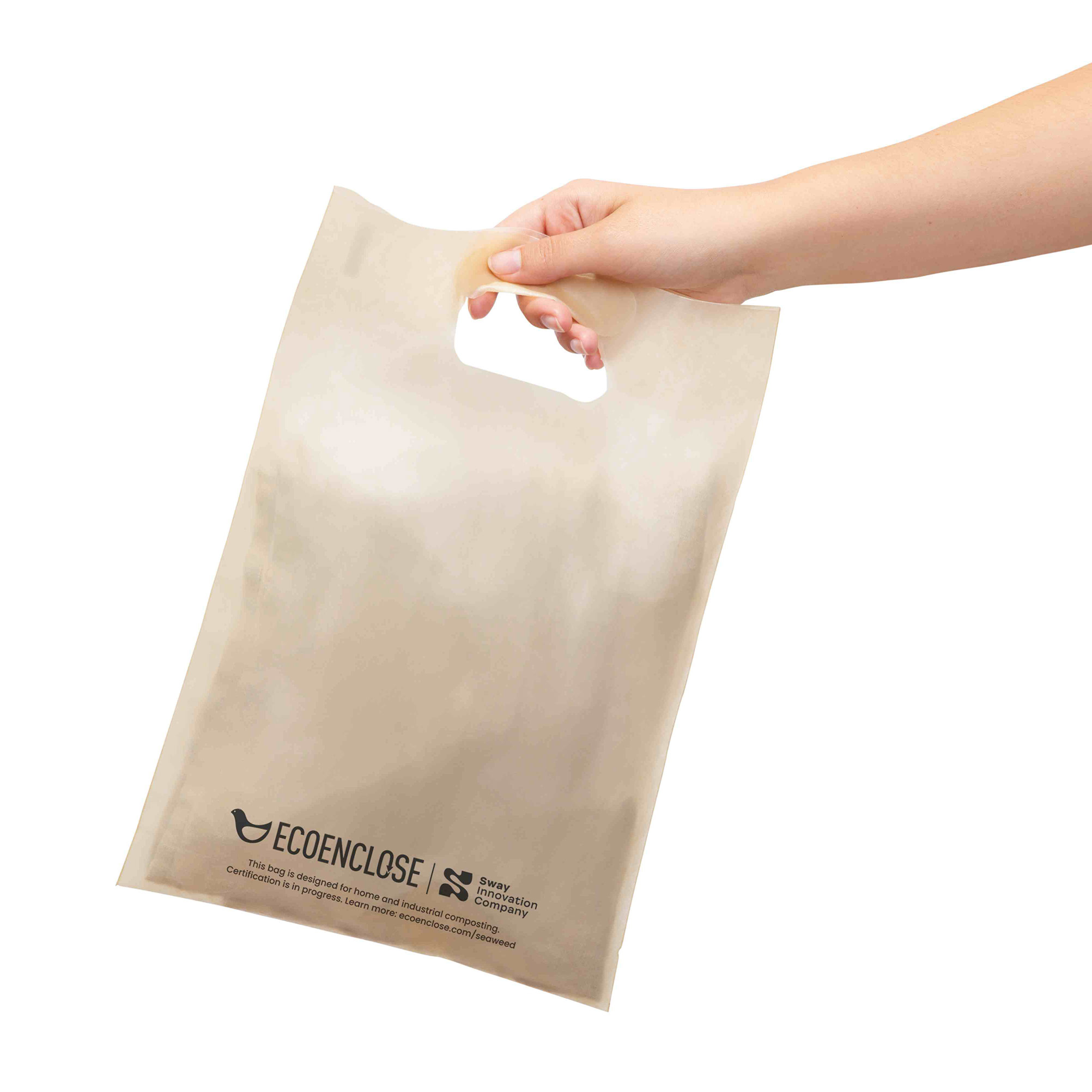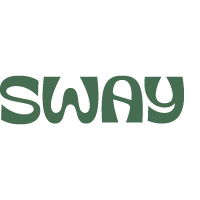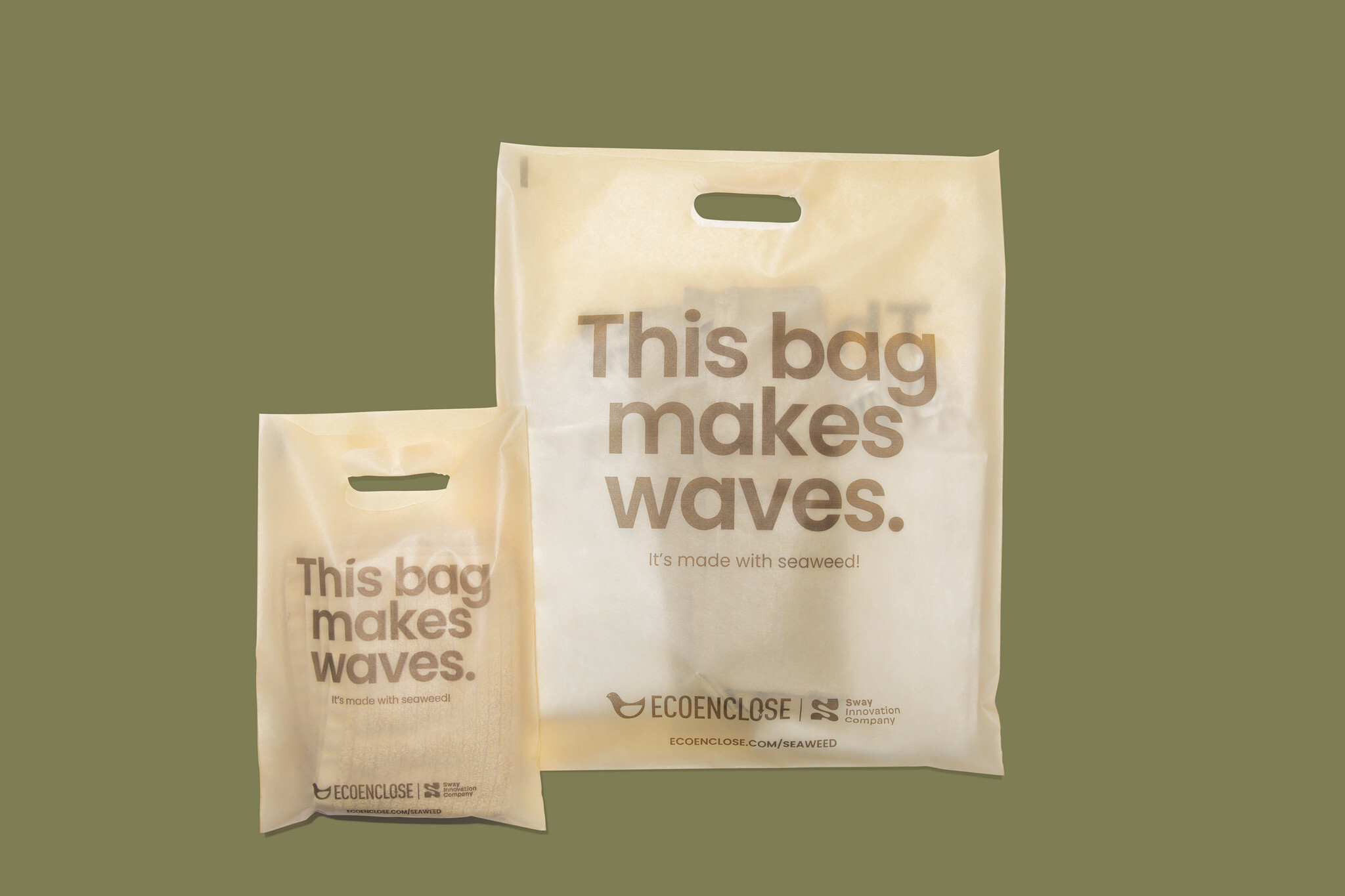Sway Die Cut Handle Bags
A circular solution for traditional LDPE plastic and a revolutionary alternative to traditional plastic retail bags. Now with expanded customization, improved performance, and an even more accessible price point.
✓ Made with seaweed, plants & home compostable polymers
✓ Translucent, durable & lightweight
✓ Designed for home & industrial composting

Made with Seaweed
Made from regenerative, renewable, and certified compostable ingredients
Compostable
Designed to decompose in home & industrial compost - TUV Austria certification pending.
Translucent
Translucent material allows product visibility (6-7% opacity)
Moisture-resistant
Can withstand some moisture, such as humidity and condensation.
Manufactured in USA
With globally sourced seaweed inputs.

Our Partner
In partnership with Sway, a biomaterial innovation company.
Custom Sway Die Cut Handle Bags
Create an exceptional customer experience with custom Sway Die Cut Handle Bags that will surprise and delight your audience while reflecting your brand’s commitment to sustainability and innovation. Add your branding on one side starting at just 500 units.
Need 10,000 units per size? Work with us on a fully customized Sway Die Cut Handle Bag project, including custom sizing, expanded print capabilities, and the most competitive pricing.
| Material | Made from seaweed, plants, and home compostable polymers. All ingredients are regenerative, renewable, or home compostable. The material is over 50% biobased content and constantly improving. |
| Recycled Content | None |
| Certifications | TUV Austria certification pending (ETA 2026). |
| Thickness | 2.5 mil |
| Material Features | • Color: Cream to golden • Clarity: Translucent (6-7% opacity) • Texture: Soft, premium, flexible, natural • Printable & heat sealable • Strong & durable • Oil & grease resistant • Moisture resistant |
| Functionality | Durable and lightweight, this bag protects goods in transit. |
| End-of-Life | Designed to decompose in home and industrial compost, pending certification from TUV Austria. Individuals who do not have access to composting should landfill these bags. |
| Origin | Manufactured in the USA |
| Bag Color | Natural cream to light golden tint |
| Print Color | Pantone Color Matching System (PMS) |
| Ink Type | Black Algae Ink™ or HydroSoy Ink |
| Print Process | Flexographic |
| Print Option | Post-production: MOQ of 500 units Inline: MOQ of 10,000 units |
What is it made from?
What is this bag made for?
Can it package food?
Why seaweed?
Unlike terrestrial crops farmed through conventional agriculture systems, seaweed thrives off sunlight and seawater, requiring low to no inputs. It’s abundant, fast-growing, space-efficient, and available on nearly every coastline. Seaweed can also generate a lot of good as it grows: increasing habitat for marine life, boosting biodiversity, and mitigating climate change impacts like ocean acidification and erosion. Plus, new science suggests that seaweed can sequester substantial amounts of carbon.
Where does the seaweed come from?
What kind of seaweed does Sway use?
How does Sway ensure sustainable seaweed sourcing?
1. Protect and enhance ecosystem services
2. Employ non-extractive, sustainable harvest techniques
3. Ensure zero introduction of plastic or synthetic substances into natural environments
4. Support cultivation in open, integrated ecosystems
5. Preserve critical habitat integrity
6. Prioritize farmer welfare


